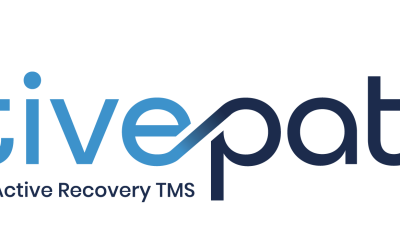Depression is a complex mental health condition that affects approximately 280 million people in the world. Due to the complexity, there are a variety of treatments, both traditional and nontraditional, that can be beneficial in helping to treat depression. Sometimes depression symptoms don’t respond to traditional treatment methods such as antidepressants. This can lead to looking outside the box to find relief from the grasp depression has on your life.
Treatment-resistant depression poses a unique challenge for those suffering from the mental health condition and those trying to help treat it. An estimated 30% of major depressive disorder patients do not find benefit from traditional interventions. Treatment-resistant depression is characterized by a lack of improvement despite multiple treatment attempts. These treatments could include several types of psychotherapy and antidepressants. There is hope that alternative treatments can help improve your treatment-resistant depression symptoms.
Navigating the treatment choices for depression
When it comes to treating depression, there are a number of treatment choices available. Depression doesn’t have a one-treatment-fits-all plan. Each person’s struggle with depression is as unique as the person themselves. When you are dealing with treatment-resistant depression, the treatment choices can feel overwhelming when previous attempts have failed to alleviate your symptoms. However, one or a combination of treatments can help break the clutches that depression has on you. Alternative depression treatments can include:
- Transcranial magnetic stimulation (TMS) — Transcranial magnetic stimulation (TMS) is a noninvasive therapy that uses magnetic pulses focused to a specific target in the brain. The specific area targeted is linked to depression. TMS can stimulate the mood-regulating brain regions and can help restore neurotransmitter balance. It can provide relief from depression without drastic side effects. TMS can be a beneficial choice for individuals who have treatment-resistant depression. Of those with treatment-resistant depression who seek TMS treatment, almost 80% see improvement in their depression symptoms.
- Cognitive behavioral therapy (CBT) — With the help of cognitive behavioral therapy (CBT) you can learn to reshape your thought patterns and behaviors. You will learn to recognize the negative thought cycles that fuel your depression. By learning to address these thoughts and patterns, you will learn to replace them with constructive and healthy perspectives. CBT can help you learn skills that will be beneficial for life. With CBT, you can learn to address your depression’s root causes and make lasting changes. In one study, out of nearly every 3 people, 1 person showed improvement due to CBT treatment.
- Esketamine — Esketamine is a medication intended to help treat treatment-resistant depression. It is derived from ketamine, and can offer rapid relief from depression symptoms. It is an FDA-approved nasal spray augmentation treatment and should be used in conjunction with oral antidepressants. The long-term effects are still being studied. It is important to discuss the risks and benefits of any medical treatments with your health care provider to make the most informed decision based on your unique circumstances.
- Exercise — Physical activity can produce endorphins, which are known as natural mood boosters. It can play a significant role in naturally helping to ease depression symptoms. Regular activity can help to improve your self-esteem, decrease your stress levels and boost your overall well-being. Studies have shown that individuals who exercised for 20 to 40 minutes three times a week for six weeks showed an improvement in depression symptoms.
Alternative treatments can be beneficial in helping alleviate symptoms of treatment-resistant depression. TMS and CBT are both treatments that have proven to be excellent choices in helping to treat depression when other treatments have been ineffective. Esketamine offers potential as a breakthrough treatment option.
Depression is diverse in nature, and there is no one-size-fits-all when it comes to treatments. You can explore and select treatments that meet your unique needs and preferences. With the help of a provider, these treatments can help you find hope, strengthen your resilience and improve your emotional well-being. The combination of traditional treatments accompanied with alternative therapies or alternative therapies alone may be the approach you need to help you find relief from depression.
Active Path can provide a multifaceted approach to your depression treatment
When your journey with treatment-resistant depression feels bleak, Active Path can help you take the steps toward remission. Our goal is to provide you with high-quality mental health care. We can help you address the symptoms of your depression with TMS, CBT, and other innovative and evidence-based treatments.
In a world where the understanding of mental health is constantly growing, deepening and evolving, we are dedicated to helping you receive the comprehensive mental health care you deserve. Your journey with depression is unique, and our treatments will be designed around your particular needs and goals.
Contact our team today for more information or to schedule an initial appointment.





